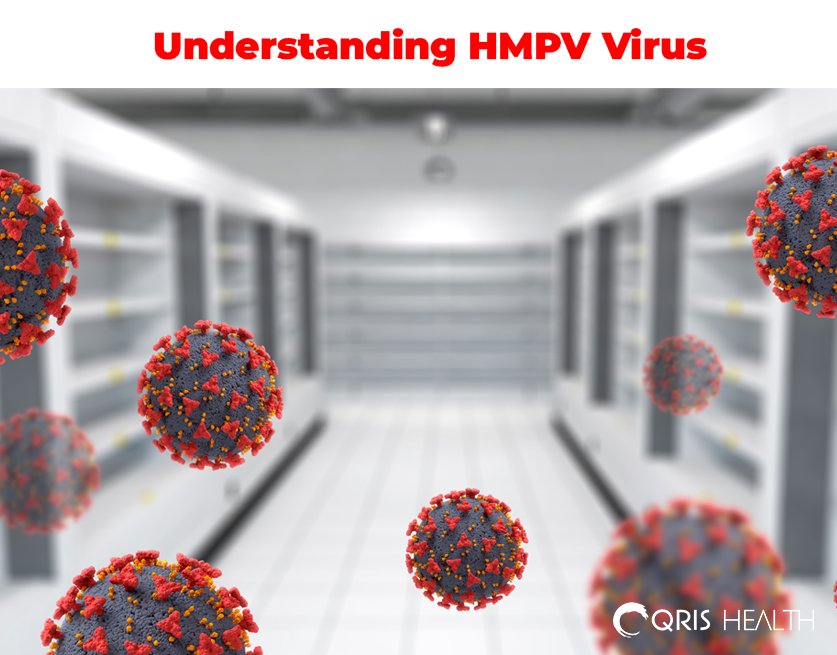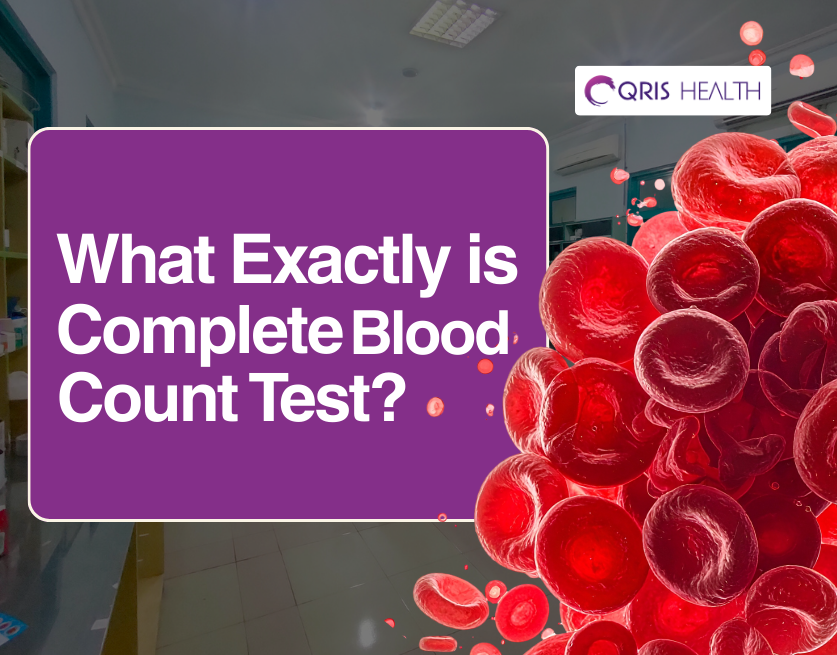HMPV: Human Metapneumovirus is currently being looked at sponsored by a surge in cases noted up within China, immediately followed by advisory instructions to state governments in India, including Karnataka, Maharashtra, et cetera. Although it is not a new virus and was first discovered in 2001, it keeps surfacing because of its potentially severe pathophysiological consequences and considerations that people are unaware of the infection.
Overview of Human Metapneumovirus
HMPV is a respiratory virus that infects every age group. This infection mainly is transmitted via respiratory droplets present in cough, sneeze or speech by an affected individual. It is also spread by contact such as the touching of a contaminated surface followed by the touching of the face or mucous membranes.
Even though the virus has actually been globalized for over two decades, it has recently raised concern cases in India. Five cases reported so far include two in Karnataka, two from Tamil Nadu, and one in Ahmedabad. These have sparked health advice to citizens to practice simple yet important hygiene practices of regular hand washing, the use of hand sanitizers in crowded areas, and self-isolation when feeling unwell to curb contracting or spreading the virus.
Health officials, including India's Union Health Minister, were to assure his people that the case didn't seem to be one that could warrant panic but added that vigilance was necessary for the increasing cases globally.
HMPV Symptoms
HMPV primarily targets the respiratory system, with symptoms varying from mild to severe. It can affect both children and adults, but the presentation of symptoms often differs depending on age and overall health.
Common Symptoms
The most frequently observed symptoms of HMPV include:
- Coughing: Persistent coughing is one of the hallmark signs of HMPV.
- Nasal Congestion: Blocked or stuffy noses are common, leading to difficulty breathing through the nose.
- Runny Nose: Increased nasal discharge, often accompanied by sneezing.
- Fever: A mild to moderate rise in body temperature.
- Sore Throat: Pain or irritation in the throat, often making swallowing uncomfortable.
These symptoms usually resolve within 2 to 5 days. However, in some cases, they may persist or worsen, necessitating medical attention.
Additional Symptoms
Certain individuals may experience gastrointestinal symptoms, such as:
- Nausea
- Vomiting
- Diarrhea
These symptoms are less common but may appear in conjunction with respiratory issues.
Severe Symptoms
While most cases of HMPV are mild, the virus can occasionally cause severe respiratory illnesses. These are more likely in:
1. Infants and young children under five years, especially those younger than one year.
2. Older adults, particularly those above 65 years of age.
3. Individuals with weakened immune systems or underlying health conditions, such as asthma or chronic obstructive pulmonary disease (COPD).
Severe Symptoms Include:
- Wheezing: A high-pitched whistling sound while breathing.
- Shortness of Breath: Difficulty or discomfort in breathing.
- Fatigue: Extreme tiredness and lack of energy.
- Bronchitis: Inflammation of the bronchial tubes leading to increased coughing and mucus production.
- Pneumonia: Infection that inflames the air sacs in the lungs, which can fill with fluid or pus.
- Severe Bronchiolitis: A serious chest infection, more common in children, that can sometimes prove fatal.
These symptoms often require hospitalization. For children, severe cases might necessitate advanced respiratory support, such as:
- High-flow nasal cannula oxygen therapy
- Continuous positive airway pressure (CPAP)
Symptoms in Different Age Groups
The severity and nature of HMPV symptoms often vary depending on the age group:
- Children (Below Five Years): Fever, cough, nasal congestion, and respiratory distress are common. In severe cases, breathing support may be required.
- Adults (Above 65 Years): Symptoms mimic those of the flu, including fever, sore throat, runny nose, and fatigue. Older adults are at a higher risk of complications such as pneumonia.
- General Population: In healthy individuals, HMPV usually causes mild symptoms similar to a common cold.
Complications of HMPV
HMPV, while usually mild, can lead to significant complications in vulnerable populations:
1. Pneumonia: A serious lung infection that can become life-threatening without proper treatment.
2. Bronchiolitis: Particularly severe in infants, this infection can obstruct airflow to the lungs.
3. Exacerbation of Chronic Conditions: Individuals with pre-existing respiratory conditions like asthma may experience flare-ups.
4. Middle Ear Infections: Adults with underlying health issues may develop severe ear infections caused by the virus.
Managing HMPV Symptoms
Currently, there is no specific antiviral treatment or vaccine for HMPV. Management primarily focuses on alleviating symptoms and preventing complications:
1. At-Home Care:
- Rest and hydration are crucial.
- Over-the-counter medications like acetaminophen or ibuprofen can help reduce fever and relieve pain.
- Use saline nasal sprays or humidifiers to ease nasal congestion.
2. When to Seek Medical Help:
- Symptoms persisting beyond two weeks.
- Severe respiratory distress or difficulty breathing.
- High fever that does not subside with medication.
Preventive Measures
Given the lack of a vaccine, prevention of HMPV relies on good hygiene practices:
- Handwashing: Wash hands frequently with soap and water for at least 20 seconds.
- Sanitizers: Use alcohol-based hand sanitizers when soap is unavailable.
- Avoid Close Contact: Keep distance from individuals displaying symptoms of respiratory infections.
- Masking and Cough Etiquette: Wear masks in crowded places and cover your mouth and nose when coughing or sneezing.
- Disinfection: Regularly clean and disinfect commonly touched surfaces.
Conclusion
Human Metapneumovirus (HMPV) is a respiratory virus that primarily affects the lungs and airways, causing symptoms ranging from mild cold-like issues to severe respiratory distress. While most infections resolve within a week, the virus can have serious implications for infants, older adults, and individuals with weakened immune systems. Awareness and adherence to preventive measures are key to managing the spread of HMPV. If symptoms persist or worsen, seeking timely medical advice is essential to prevent complications.
FAQs
1. How can you tell if you are afflicted with HMPV?
HMPV shows the usual symptoms regarding the common cold and flu:) Fever, cough, nasal congestion, sore throat, and headache. You should visit your physician for a proper evaluation and testing if it continues after the two weeks' period or aggravates in breathing difficulty.
2. What is the cure for HMPV?
No specific antiviral treatment is delivered toward HMPV. Symptomatic care-check rest and oral hydration; anti-pyretics and nasal decongestants for all symptomatic signs. Severe stage treatment is required, including oxygen therapy or hospitalization.
3. Is HMPV a serious disease in nature?
HMPV is usually mild, but it can turn severe in infants, elderly patients, or in people having low immunity. Severe cases may have complications such as pneumonia or bronchiolitis, requiring immediate medical attention.
4. Do you take antibiotics for HMPV?
No; as a viral infection, it will not be treated with antibiotics. Antibiotics are used only against bacterial infections, and therefore should be appropriate to any secondary bacterial complication to be prescribed.
5. Does HMPV give fever?
Fever is nearly always an accompanying symptom of HMPV infection, along with cough, sore throat, and fatigue. Fever is generally mild to moderate in severity, lasting only a few days.
Read More
Understanding the Human Metapneumovirus (HMPV) - Is It Dangerous?
How to Treat HMPV Virus Infections
How to Prevent HMPV Virus Transmission
How to Identify HMPV Virus Symptoms
Who Is Most at Risk for HMPV Virus?
What Treatments Are Available for HMPV Virus?
What is HMPV Virus?


 Health Risks of Inactive Lifestyle.jpg)
 Health effects of smoking.jpg)


